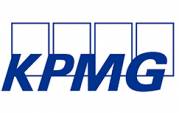Bringing shared value to reality
Data can transcend numbers as boards navigate modern expectations for more high-performing, holistic and transparent organisations.
Inland Revenue’s focus on tax governance puts the spotlight on tax strategy and assurance, and puts boards on notice.

Greater scrutiny on businesses “paying their fair share” by governments and civil society has resulted in increasingly complex tax rules and greater use of data analytics by tax authorities when reviewing tax affairs.
Expectations have also changed. Rather than just showing that tax is correctly accounted for (and being penalised to the extent that it is not), it is now expected that businesses will be managing their tax risks through appropriate governance arrangements.
In summary, Inland Revenue’s expectation is that tax governance arrangements will provide sufficient assurance to stakeholders that tax risks are subject to proper controls and that outputs such as tax returns can be relied upon. Tax should not be viewed just as an operational matter for management. The tone from the top is important. To that effect, boards should take ownership of, and responsibility for, setting the company’s overall taxation strategy and direction.
Inland Revenue expects the following questions to be reviewed on a regular basis by the board:
That expectation has been signalled largely through Inland Revenue’s Multinational Enterprises Compliance Focus document. In the most recent version, the tax governance focus has been extended to more businesses, not just large multinationals.
This is being backed up by an Inland Revenue campaign looking at tax governance arrangements. This campaign targets a select number of companies who have been sent a questionnaire for completion. Some of the questions being asked include:
Where formal tax governance frameworks are not already in place, Inland Revenue has asked whether it is expected that they will be in place in the next 12 months. The clear implication being that if tax governance has not been considered, this needs to be addressed as a matter of priority.
“Regular reporting to the board on tax risks and compliance with the strategy should give comfort to all that tax is being appropriately managed and that actions are being taken to mitigate risks.”
Inland Revenue has also signalled that, for the taxpayers selected, follow-up actions in the form of “more detailed inquiries or an in-depth review as part of a wider examination of the company’s taxation affairs” may be taken. Safe to say, business is now on notice.
This is likely the first step in Inland Revenue being more active in this area and, over time, we see this applying
to a widening range of taxpayers. Our expectation is that tax governance will form part of the overall risk assessment framework for audits and
other enforcement activity (similar to the approach in Australia). Therefore, it is more important than ever to ensure appropriate tax governance policies are in place and, importantly, that these are being complied with by the business.
However, even in the absence of Inland Revenue’s focus, we would argue that robust tax governance arrangements are simply good business practice.
Tax strategies and tax control frameworks provide clear instructions on how the board expects tax risks in the business to be managed. Regular reporting to the board on tax risks and compliance with the strategy should give comfort to all that tax is being appropriately managed and that actions are being taken to mitigate risks. Having well-documented, and independently verified, processes will also reduce the risk of anything slipping through the cracks.
Accordingly, tax governance isn’t just about demonstrating that tax is being well managed to Inland Revenue, when it inevitably comes asking. Good governance will make tax processes more robust and outcomes more predictable – that’s just good for business.

The views and opinions expressed herein are those of the author and do not necessarily represent the views and opinions of KPMG, a New Zealand partnership. The information contained herein is of a general nature and is not intended to address the circumstances of any particular individual or entity. Although we endeavour to provide accurate and timely information, there can be no guarantee that such information is accurate as of the date it is received or that it will continue to be accurate in the future. No one should act upon such information without appropriate professional advice after a thorough examination of the particular situation.